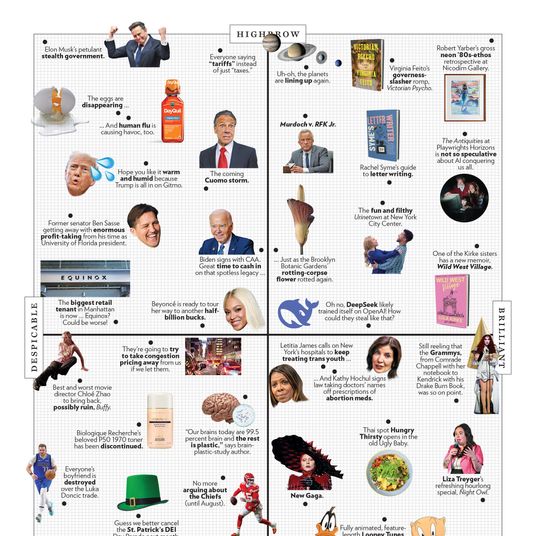
For years, avian flu has loomed as a global threat as it has spread among commercial dairy and poultry farms. However, the avian flu’s growth has continued unabated with instances of the virus spreading beyond animals to humans. Currently, the Centers for Disease Control has identified 67 human cases of bird flu in the United States since 2024, the bulk of them presenting with mild symptoms. One severe case was identified in Louisiana late last year and resulted in the first known death associated with the flu. Overall, the CDC has maintained that the current public-health risk is low.
Recent days have seen further unsettling developments, including the temporary closure of poultry markets in New York as well as the emergence of a new strain of the virus in dairy cows. However, the Trump administration hasn’t appeared to prioritize the outbreak in its early days. The release of several studies related to the avian flu has reportedly been halted following an order from the federal government. Here is a roundup of the most important recent news about the growing epidemic.
New York orders temporary shutdown of live poultry markets
On Friday, New York governor Kathy Hochul ordered the temporary closure of live poultry markets in New York City as well as Westchester, Nassau, and Suffolk counties. The action comes after seven new cases of the bird flu were discovered in markets located in Queens, Brooklyn, and the Bronx through routine surveillance.
Under the order, markets in those locations will be required to sell down all of their inventory, clean and disinfect the space and equipment, and pass an inspection in order to reopen. Additionally, no new live poultry will be allowed to be delivered during the shutdown.
During a morning briefing on the order, Hochul assured New Yorkers that the temporary closure was not a signal that conditions were worsening in the state. “Now, I want to reiterate that people should not be concerned. Let me be clear, there is no immediate public-health threat. We have been vigilant and will remain vigilant so New Yorkers can go about their lives with peace of mind,” she said.
Westchester County park closed due to bird-flu concerns
A local park in Westchester County is closed until further notice following the discovery of a dozen dead birds over the weekend. On Sunday, 12 dead Canadian geese were discovered in Carroll Park located in Mount Pleasant and were later taken by the state Department of Environmental Conservation to be studied. Local officials announced that the park would be closed to the public until it’s clear that there’s no threat to the public and warned residents about coming into contact with any other dead birds found in the area.
Second bird-flu strain detected in cows
The U.S. Department of Agriculture announced this week that a second strain of the avian flu has been detected in dairy cows. The agency’s Animal and Plant Health Inspection Service said the genotype D1.1 was discovered in cows in Nevada. Prior to this, avian flu cases in cows have typically been the B3.13 genotype while the D1.1 genotype has been primarily observed in wild birds and poultry. This discovery seems to signal that the virus is far more persistent than initially believed.
“USDA APHIS continues to work with the Nevada Department of Agriculture by conducting additional on-farm investigation, testing, and gathering additional epidemiological information to better understand this detection and limit further disease spread,” the agency said in a statement.
Trump administration limits bird-flu data
As President Donald Trump’s second term enters its first full month, his administration has strongly signaled that it will take a far different approach to public health than its predecessors. KFF Health News reported late last month that acting Health and Human Services Secretary Dorothy Fink ordered an “immediate pause” on release of any public communications from federal health agencies until they can be reviewed for publication by an administration official.
This action prevented the release of several studies related to the bird flu including on whether veterinarians have come down with the virus and concerning the possible transmission between humans and their pets. The New York Times reports that the Centers for Disease Control briefly published a report on potential for avian flu spread between humans and cats, but subsequently deleted the relevant information from its Morbidity and Mortality Weekly Report:
In one household, an infected cat might have spread the virus to another cat and to a human adolescent, according to a copy of the data table obtained by The New York Times. The cat died four days after symptoms began. In a second household, an infected dairy farmworker appears to have been the first to show symptoms, and a cat then became ill two days later and died on the third day.
Despite the looming threat of a potential widespread outbreak of bird flu, the Trump administration has yet to take a proactive stance toward the virus. The Times notes that agencies have yet to hold a briefing on the avian flu since Trump took office on January 20.
Egg prices are up and will continue to rise
In its Food Price Outlook for 2025, the USDA predicts that egg prices will increase 20.3 percent this year due to the ongoing spread of bird flu. The agency noted that the outbreak impacted the price of eggs by reducing the nation’s egg-laying flocks. The USDA said that prices increased by 8.4 percent in December 2024 and “continue to experience volatile month-to-month changes.”
Even Waffle House, the iconic diner chain, announced that it would be adding a 50-cent-per-egg surcharge on its customers’ bills in light of the rising price of eggs.





























